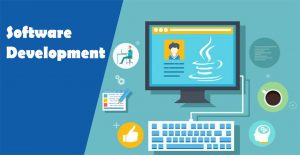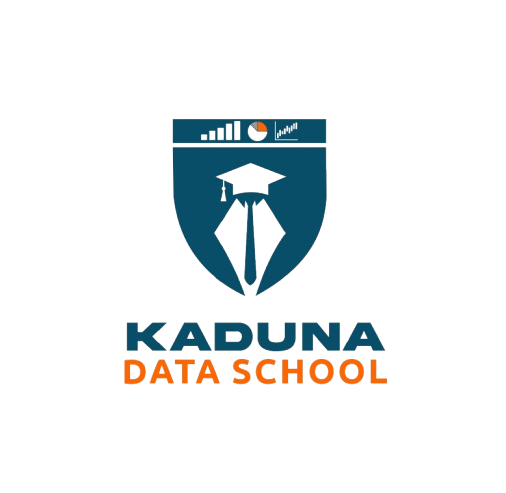
IT skills are in-demand lately with the transformation of life’s activities.
These skills are highly sought-after both for those looking to take up as a profession or for individual passion and dream. Abuja Data School serves it all with the training required to fuel that zeal. You have a chance to enroll in the software development training in Abuja, Nigeria and up-skill from being a beginner to a proficient software developer.
Ever wondered how things work from the internet to the components (hardware and software) of the computer system to the applications on your Smartphone, laptop, to your gaming consoles to your desired browsers or even search engines? The power of software. Interesting right?
Software is a set of programs and instructions readable by the computer and used to control the computer system. These programs tell the computer what to do. It also allows you to command the system to perform tasks as you direct. Software components do not have physical presence as they are stored in digital form within the memory of the computer.
What is Software Development?
Software development is the process of creating a software from scratch through planning, analysis, deployment, testing and maintenance. The process starts from conception to deployment and maintenance.
Who is a Software Developer?
Software developer is a programmer concerned with all the components in the development process of software. They research, design, test and implement software built from scratch or modify existing software. They can also be called “Software makers”. A software maker is a computer programmer who creates computer software.
Software Engineers vs. Software Developers
Software Engineers are likely called software developers as they examine products, identify problems and proffer solutions to issues relating to the software. Every software developer is unique as there are various areas to specialize like the web, cloud, application, gaming and more functions of software development. Nevertheless, they maintain similar approaches to software development and abide by the methodologies fit for particular products. These programmers customize software to companies specifications and make updates according to users’ feedback.
Methodology of Software Development:
The procedures of software development can be categorized as either a waterfall (follows a fixed sequence in execution), iterative (software are reviewed constantly by breaking tasks into short sprints and tests are multiple) or continuous model (a linear process that ensures the progression between the different phases minimizing interruption).
There are procedures and techniques from the creation to the execution of software applications.
- Agile: fast changing requirements and relationship with users.
- Lean: requires a well detailed documentation to the process and avoidance of unproductive activities in the process.
- Waterfall: follows the stages appropriately before moving to the next. Cannot be used for products with rapidly-changing requirements. It is linear though without customer feedback. Testing is implemented at the end of the development process.
- Prototype: working on prototype models given to the users to test, evaluate and give feedback of the product.
- Rapid applications development: requires effective engagement from the developers and the community of users.
- Dynamic systems: swift delivery and breaks down fixed processes into smaller looping parts.
- Feature driven: breaking development process into a feature list of the overall model focusing on an item at a time.
- Scrum: tasks are executed at instants for a fast result.
Choosing the right methodology which basically depend on your team structure is very critical in software development. At Abuja Data School, full mentorship on project requirements and getting the right teams for your development process is guaranteed.

Types of Software Development:
- Application software development.
- Web development.
- Database.
- Mobile software.
- API.
- Embedded system development.
- Security software development.
- Software tools.
- Data science.
- Cloud computing/ cloud based software.
Software Development Tools:
Every developer aims to deliver top-notch services and be efficient in software projects. Here are tools useful for the development process. These tools depend on the language and methodology of choice;
GitHub: an open-source platform for code review and management.
Atom: a powerful text editor that functions in any operating system.
Cloud 9 IDE: is an integrated environment where bugging and debugging issues are shared to get software development solutions from others’ experience.
Linx: a low-code tool that is used for development without coding.
GeneXus: is also a low-code platform that automates coding for software development and maintains the application.
Embold: a tool that manages the attributes of software projects.
Quixy: with its no-code feature, the development process is fastened through automation.
Zoho Creator: allows users to create customizable applications with less coding experience.
Secure Software Development
The term “secure” refers to protection, therefore, Secure software development is including security features/tools to a software from its development to its deactivation.
Software development life cycle
The course of events that brings a new software or already existing from a start to a final level up to its cessation is the life cycle of a software development. There are stages or most likely referred to as phases of software development life cycle. Peculiar to development teams, the phases are termed differently, nevertheless, there is a starting point and an ending point.
- Planning/Research phase.
- Design phase.
- Build/Document phase.
- Testing phase.
- Deployment/Integration phase.
- Maintenance phase.
Career Opportunities for Software Developers:
Areas to delve into as a software developer to avoid going in circles combining the bulk of each one without gaining mastery in any. Nevertheless, you can advance from one function to another as you grow in your skill. Abuja Data School is here to take you through that process, help you achieve that dream of excelling in the IT world.
- Application developers are programmers who develop software for specific purposes e.g. Google Chrome, Microsoft Office.
- System developers create software that mainly operate the computer like operating systems (Windows, Unix etc).
- Web developers develop software that are web-based e.g. www.abujadataschool.com
- Game developers build gaming software e.g. gamemaker, CryEngine.
- Mobile developers create software that runs on mobile devices.
- Data scientists.
- Big data developers.
- API.
- Embedded system developers.
- Security software developers.
Programming Languages necessary for Software Development:
- HTML/CSS/JavaScript
- C++
- Java
- Visual Basic
- PHP/MySQL
- React Js
- Node Js
- Flash/ActionScript
- Microsoft.NET
- Ruby on Rails
- Microsoft XNA.
Qualities to look out for in making a developer’s choice.
Enjoy solving puzzles and focus, Taking Aptitudes, Independent, Patient, Determined, Tech savvy.
Steps to becoming a software developer as a beginner:
- Be intentional about learning.
- Visit Abuja Data School www.abujadataschool.com to enroll for your desired course. Ensure to meet the requirements.
- Pick a learning path that suits you. If not certain on what to learn, share concerns with the team at Abuja Data School. Get a guide and be trained.

